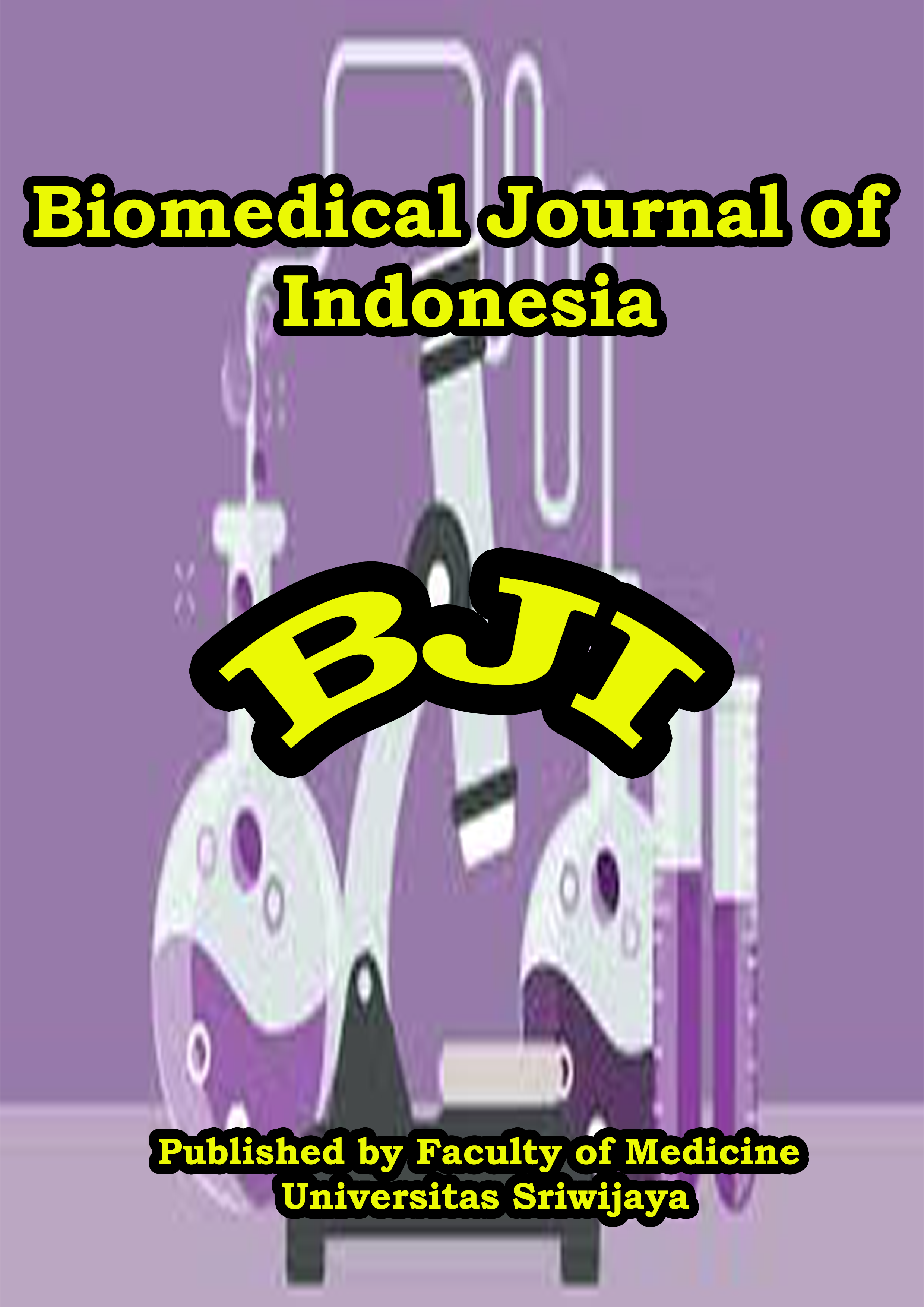Coagulase-Negative Staphylococcus (CoNS) Susceptibility Pattern Towards Antibiotics in Infection Patients at RSUP Dr. Mohammad Hoesin Palembang
Main Article Content
Introduction. Coagulase Negative Staphylococcus (CoNS) is a bacterial species commonly causing infection in humans upon entrance into bloodstream. Antibiotics remain the therapeutic modality of choice in eradicating CoNS bacteria. Increasing incidence of antimicrobial resistance has made it difficult to administer the right treatment. In addition, CoNS susceptibility patterns differ between regions and with time. This study aimed to determine the susceptibility pattern of CoNS towards various antibiotics in infection patients at RSUP Dr. Mohammad Hoesin Palembang. Methods. This study was a descriptive, observational study using the data from blood cultures of CoNS bacteria undergoing antimicrobial susceptibility test (AST) in the Clinical Microbiology Laboratory, and utilizing demographic and clinical data from the Medical Records Installation from July 1, 2021 to December 31, 2021. Results. There were 123 isolates from patient blood cultures which underwent AST. The most frequently identified bacterial species were Staphylococcus hominis ssp hominis, Staphylococcus epidermidis, Staphylococcus haemolyticus, and Staphylococcus saprophyticus. AST results showed that on average, CoNS were susceptible to tigecycline (100%), nitrofurantoin (98.4−100%), linezolid (86.1−100%), and vancomycin (80.6−100%). CoNS were most resistant to benzylpenicillin (100%), oxacillin (85.5−97.2%), and erythromycin (75−97.2%). Conclusion. CoNS were resistant towards several available antibiotics in RSUP Dr. Mohammad Hoesin Palembang.

